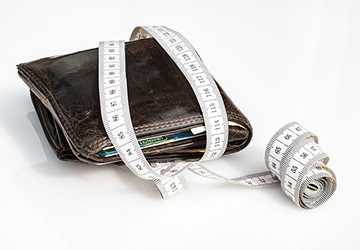It's an old road most of us have traveled at one time - borrowing money only to find ourselves in debt. Debt can be overwhelming, limit our financial freedom, and cast a long, dark shadow over our lives. But it wasn't all doom and gloom. There is always light at the end of the tunnel, and you must know how to achieve it. Here's your comprehensive guide to paying off debt faster: Top 10 Strategies for Living Debt Free. Buckle up because we're about to untangle the thorny knot of debt.

Top 10 Strategies for Debt-Free Living
Before we get too deep, it's important to remember that Rome wasn't built in a day, and neither is debt reduction. Now, without further ado, let's dive into the top strategies for paying off debt fast.
1. Outline your debt situation
Ignorance is not bliss when it comes to debt. The first step is to take a sober, hard look at your debt situation. How much do you owe them? What is the interest rate? Payment date? Grab a cup of coffee and list all your debts. This is the first step towards a debt-free life.
2. Set realistic goals
"You have to be the change you wish to see in the world," said Mahatma Gandhi. You have to be the change you want to see financially. Set realistic and achievable goals for paying off debt. Whether paying off your credit cards in six months or halving your student loans in a year, your goals should inspire progress, not fear.
3. Debt snowballing
The principle of the debt snowball strategy is similar to acceleration. Start by paying off your tiniest essential obligations and then move on to more important ones. The mental satisfaction of paying off small debts can ignite your resolve to face and manage more enormous financial responsibilities.
4. Debt Avalanche Technology
Are you more rational than emotional? Then Debt Avalanche Technology is for you. With this strategy, the focus is on paying off the debt with the highest interest rate. If you stick with it, you'll save your resources longer.
5. Harness the power of your budget
Have you ever heard the phrase "live within your means"? That's what the budget is all about. Allocate funds first to necessities and then to luxuries. With the money you save, you can pay off your debt faster.
6. Additional income, additional payments
Find ways to earn extra income. It could be selling dusty items in your attic or a side hustle. Any extra income should go toward your debt repayment plan.

7. Rethink your lifestyle
Lifestyle changes can go a long way toward speeding up debt payments. You can save valuable money by skipping takeout, using public transport, or making your coffee. Remember: a penny saved is a penny earned.
8. Debt Consolidation
Sometimes it makes sense to consolidate your debt into one loan with a lower interest rate. This program can simplify the reimbursement process and reduce your tax burden.
9. Seek professional help
If your debt is being taken over, it is important not to hesitate and seek a credit counselor. They can provide essential advice and resources to help you navigate the often confusing debt situation.
10. Set up an emergency fund
While saving when you're in debt might seem counterintuitive, an emergency fund can prevent further debt accumulation in the event of unexpected expenses. Start small and build up your safety net gradually.
Diploma
Your Journey to Paying Off Debt Faster: Top 10 Strategies for Living Debt-Free Begins Now. Remember, this is not a sprint; this is a marathon. The keys to victory are persistence, discipline, and a little grit. Your debt-free life awaits; grab it now!
Common problem:
Why is it important to pay off debt quickly?
Paying off debt quickly can save a lot of interest and speed up your journey to financial freedom.
Which is more effective: the debt snowball strategy or the debt avalanche technique?
Both approaches have their advantages. The snowball method can have psychological benefits, while the avalanche method can save money over time. Choose one that fits your personality and financial goals.
Can a budget help me pay off debt faster?
Absolutely! You can identify and reduce unnecessary spending by monitoring spending and freeing up funds to pay down debt.
Is it essential to build an emergency fund if I'm in debt?
Having an emergency reserve can help with unforeseen expenses without creating additional debt.
Should I seek professional help to pay off my debt?
If you're overwhelmed by debt, seeking professional help can provide better guidance and resources to manage your finances.
